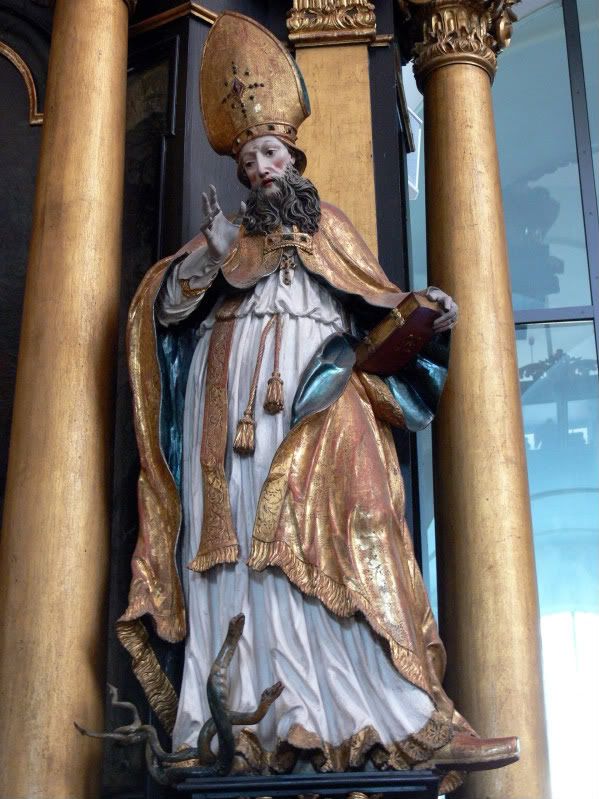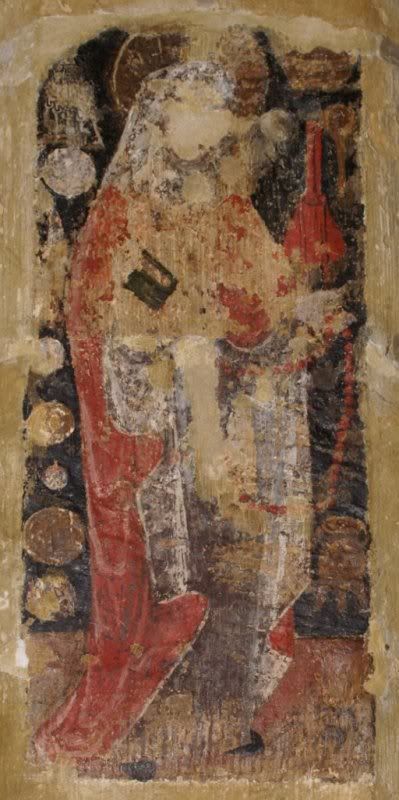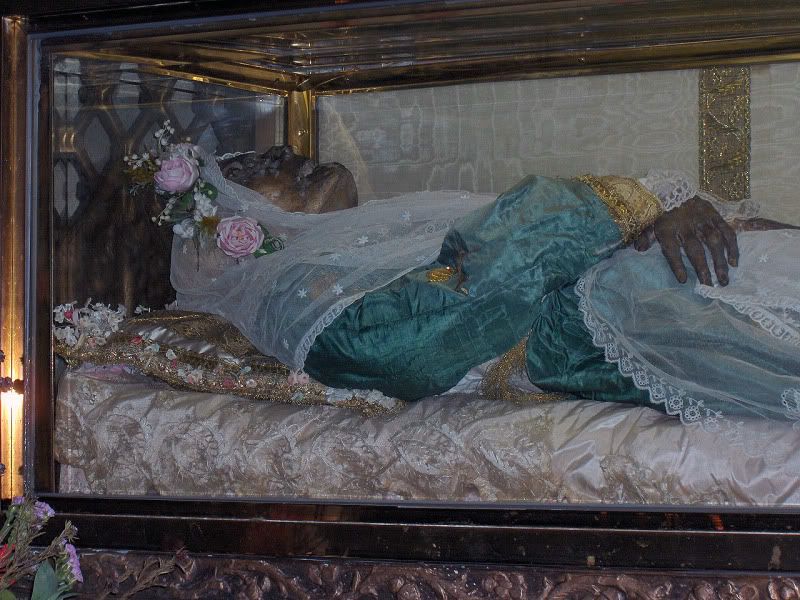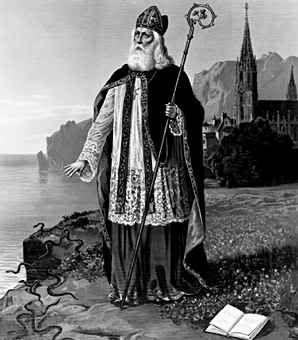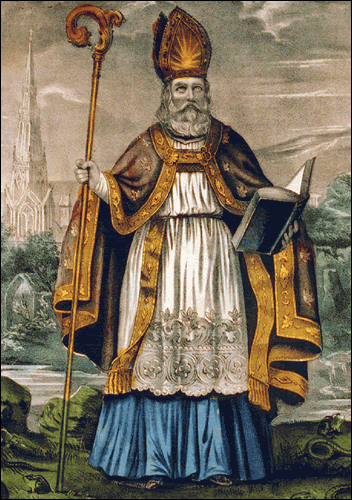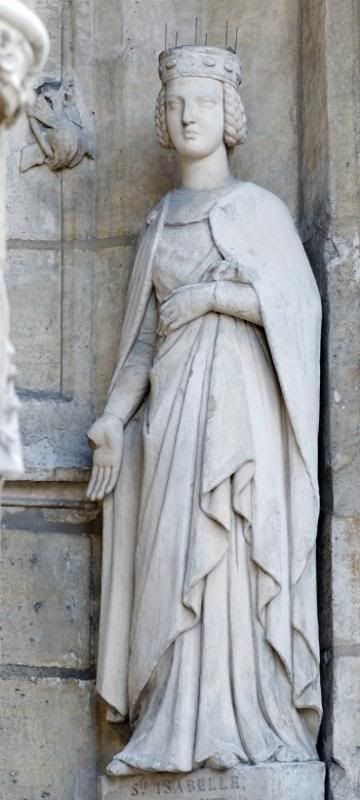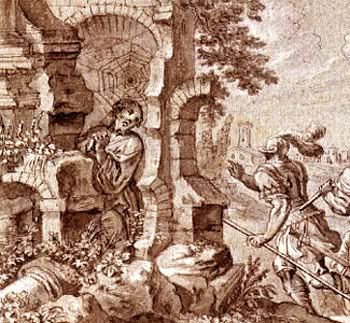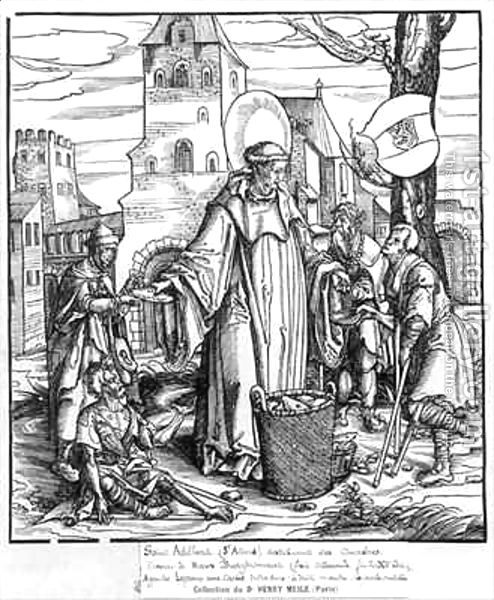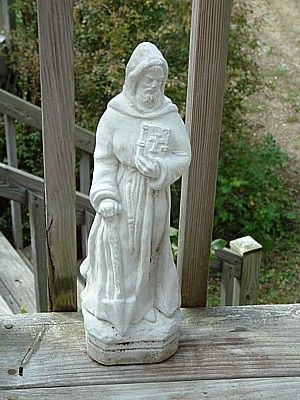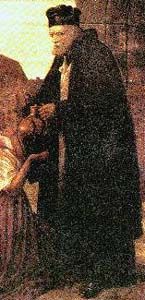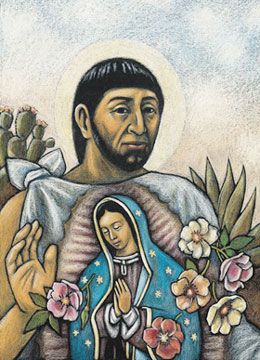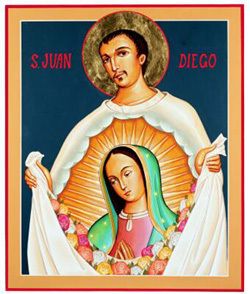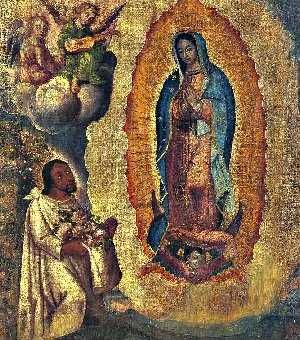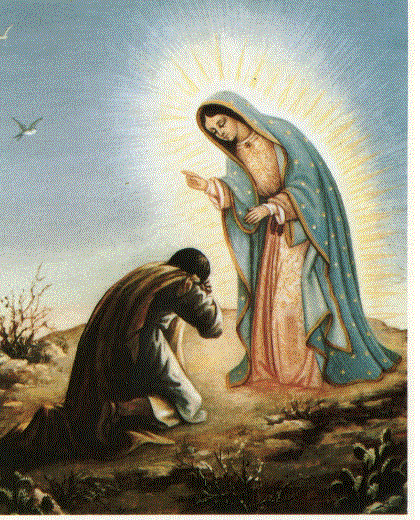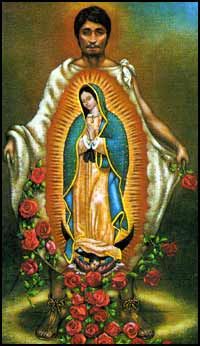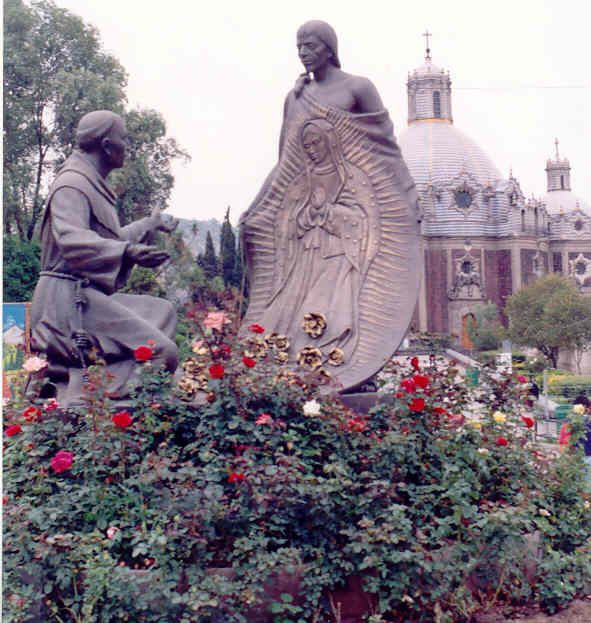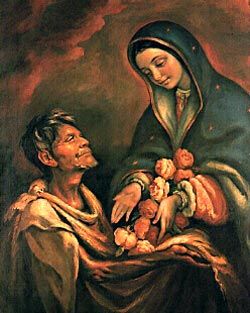Hilary was born into a noble family in France, a relative of Saint Honoratus, Archbishop of Arles. Hilary was raised with an extraordinary education, wealth, and privilege, and seemed poised to make his mark on the secular world when Saint Honoratus came to him, urging his entrance into the Abbey at Lerins. Saint Hilary was torn, as the monastic life was not what he had planned, nor had he felt called to completely. He wrote, "On one side, me-thought I saw the Lord calling me; on the other the world offering me its seducing charms and pleasures. How often did I embrace and reject, will and not will the same thing! But in the end Jesus Christ triumphed in me. And three days after Honoratus had left me, the mercy of God, solicited by his prayers, subdued my rebellious soul."
Following his visit with Saint Honoratus, Hillary entered the Abbey at Lerins, eager to embark on his spiritual mission alongside his relative. "What floods of tears," he wrote about Saint Honoratus, "did this true friend shed to soften the hardness of my heart! How often did he embrace me with the most tender and compassionate affection, to obtain of me that I would take into serious consideration the salvation of my soul! Yet, by an unhappy victory, I still remained conqueror." Honoratus, finding his endeavors to wean him from the charms of a deceitful world not completely effective, turned to prayer, saying to our soon-to-be-Saint, "I will obtain of God, what you will not now grant me."
At the young age of 29, Hilary was chosen as Archbishop of Arles—an appointment he resisted in humility-- succeeding Honoratus. He became known for his austerities, despite his appointed role, his mortification and penance, and for the love he showed to his community of faith—the “congregation” as he referred to them (possibly the first to do so). He spent his days in manual labor, raising money for the poor, and was quick to sell church property in ransom for captives. He traveled everywhere on foot, preaching, and converting many through the gift of persuasive oration provided to him by the Lord. Able to easily tailor his language to the education level of the listener, Saint Hilary was fond of saying phrases similar to, “You will not so easily get out of hell, if you are once unhappily fallen into its dungeons!" as warning to sinners.
Upon his appointment, Saint Hilary sold all the property he had inherited, distributing the money raised to the poor and to financially struggling monastic communities. He became a model of prayer, fasting, charity, and virtue. His zeal for the holy life raised the attention and anger of others in leadership roles in the Church, to whom Hilary’s zeal appeared hasty and disobedient. In his exuberance to spread the word of God, he occasionally made powerful governmental adversaries in a time when the power of the pope had not yet been fully established. Indeed, in speaking out on many issues, Saint Hilary—in his humanity-- made mistakes which led to his eventual reprimand by Pope Leo, and the stripping of his title. Eventually, through this time of trial, Saint Hilary refined his virtue, furthering his humility, patience, submissiveness, and obedience. After some time, he was restored by the patient pope, and served the Lord until his death at age 49. While some doubted his methods, none had ever doubted his piety and holiness.
Not only was Saint Hilary a gifted orator, he also wrote several treatises on God, some of which survive today. "We are all equal," he wrote, "in Jesus Christ; and the highest degree of our nobility is to be of the number of the true servants of God. Neither science, nor birth, according to this world, can exalt us, but in proportion to our contempt of them."
“The Lord taught by way of example that the glory of human ambition must be left behind when he said, “The Lord your God shall you adore and him only shall you serve.” And when he announced through the prophets that he would choose a people humble and in awe of his words, he introduced the perfect Beatitude as humility of spirit. Therefore he defines those who are inspired as people aware that they are in possession of the heavenly kingdom. Nothing belongs to anyone as being properly one’s own, but all have the same things by the gift of a single parent. They have been given the first things needed to come into life and have been supplied with the means to use them.”
The life of Saint Hilary is one of struggle to be obedient. His plans for his life were not what the Lord had in mind, and he struggled to obey—relying not only on his own merit but on the prayers and support of his family. At age 29, Saint Hilary resisted his appointment as Archbishop, but eventually was obedient to the Lord’s will and served with zeal. Even in his older age, Saint Hilary struggled with submissiveness to the pope, but through prayer and penance was able to again overcome his human weakness.
Oftentimes we think of the lives of the saints as perfect and smooth. Saint Hilary’s life reminds us that human struggles are part of the Lord’s plan for us, part of His calling to us, part of our refining process. Through prayer, penance, and fasting, Saint Hilary overcame his human weakness, increasing his obedience, and submitting himself to the will of God—but it wasn’t easy, and it took his entire life! We are encouraged by Saint Hilary when we, ourselves, struggle—that while we work to understand and follow the Lord’s will, our time on earth (while never smooth and easy) will yield holy fruit if we strive for virtue!
A Prayer for the Virtue of Obedience
Jesus, Almighty King of kings, You Who obeyed Your Father to the end, Teach me the meaning of obedience. My soul burns to comply to Your Will, Striving to charm Your Divinity. While my worldly nature seeks one way, My spiritual nature seeks another. Bless me with the strength to obey, That my soul may subdue both natures, Blending them as a fair aromatic bloom. I always seek favor in Your eyes, To always obey You until my last breath!







